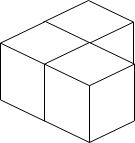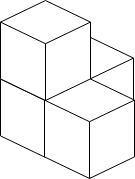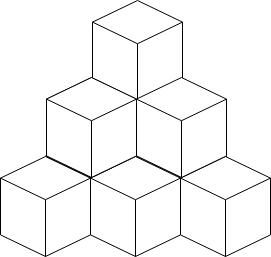2021-01-24 Daily-Challenge
Today is Sunday, I gonna review the tasks I've done this week, and finish today's leetcode's January LeetCoding Challenge with cpp.
BTW, I participated in Weekly Contest 225.
January LeetCoding Challenge 24
Description
Merge k Sorted Lists
You are given an array of k linked-lists lists, each linked-list is sorted in ascending order.
Merge all the linked-lists into one sorted linked-list and return it.
Example 1:
Input: lists = [[1,4,5],[1,3,4],[2,6]]
Output: [1,1,2,3,4,4,5,6]
Explanation: The linked-lists are:
[
1->4->5,
1->3->4,
2->6
]
merging them into one sorted list:
1->1->2->3->4->4->5->6
Example 2:
Input: lists = []
Output: []
Example 3:
Input: lists = [[]]
Output: []
Constraints:
k == lists.length0 <= k <= 10^40 <= lists[i].length <= 500-10^4 <= lists[i][j] <= 10^4lists[i]is sorted in ascending order.- The sum of
lists[i].lengthwon't exceed10^4.
Solution
class Solution {
ListNode* merge2Lists(ListNode *a, ListNode *b) {
ListNode *newHead = new ListNode(-1);
ListNode *cur = newHead;
while(a && b) {
if(a->val < b->val) {
cur->next = a;
cur = cur->next;
a = a->next;
} else {
cur->next = b;
cur = cur->next;
b = b->next;
}
}
if(a) cur->next = a;
if(b) cur->next = b;
return newHead->next;
}
public:
ListNode* mergeKLists(vector<ListNode*>& lists) {
int len = lists.size();
if(!len) return nullptr;
for(int i = 1; i < len; i <<= 1) {
int begin = 0;
while(begin + i < len) {
lists[begin] = merge2Lists(lists[begin], lists[begin+i]);
begin += 2*i;
}
}
return lists[0];
}
};
Weekly Contest 225
1736. Latest Time by Replacing Hidden Digits
You are given a string time in the form of hh:mm, where some of the digits in the string are hidden (represented by ?).
The valid times are those inclusively between 00:00 and 23:59.
Return the latest valid time you can get from time by replacing the hidden digits.
Example 1:
Input: time = "2?:?0"
Output: "23:50"
Explanation: The latest hour beginning with the digit '2' is 23 and the latest minute ending with the digit '0' is 50.
Example 2:
Input: time = "0?:3?"
Output: "09:39"
Example 3:
Input: time = "1?:22"
Output: "19:22"
Constraints:
timeis in the formathh:mm.- It is guaranteed that you can produce a valid time from the given string.
Solution
class Solution {
public:
string maximumTime(string time) {
if(time[0] == '?' && time[1] == '?') {
time[0] = '2';
time[1] = '3';
} else if (time[0] == '?') {
if(time[1] > '3') {
time[0] = '1';
} else {
time[0] = '2';
}
} else if (time[1] == '?') {
if(time[0] == '2') {
time[1] = '3';
} else {
time[1] = '9';
}
}
if(time[3] == '?') {
time[3] = '5';
}
if(time[4] == '?') {
time[4] = '9';
}
return move(time);
}
};
1737. Change Minimum Characters to Satisfy One of Three Conditions
You are given two strings a and b that consist of lowercase letters. In one operation, you can change any character in a or b to any lowercase letter.
Your goal is to satisfy one of the following three conditions:
- Every letter in
ais strictly less than every letter inbin the alphabet. - Every letter in
bis strictly less than every letter inain the alphabet. - Both
aandbconsist of only one distinct letter.
Return the minimum number of operations needed to achieve your goal.
Example 1:
Input: a = "aba", b = "caa"
Output: 2
Explanation: Consider the best way to make each condition true:
1) Change b to "ccc" in 2 operations, then every letter in a is less than every letter in b.
2) Change a to "bbb" and b to "aaa" in 3 operations, then every letter in b is less than every letter in a.
3) Change a to "aaa" and b to "aaa" in 2 operations, then a and b consist of one distinct letter.
The best way was done in 2 operations (either condition 1 or condition 3).
Example 2:
Input: a = "dabadd", b = "cda"
Output: 3
Explanation: The best way is to make condition 1 true by changing b to "eee".
Constraints:
1 <= a.length, b.length <= 105aandbconsist only of lowercase letters.
Solution
class Solution {
public:
int minCharacters(string a, string b) {
map<char, int> cntA, cntB;
for(auto c : a) cntA[c] += 1;
for(auto c : b) cntB[c] += 1;
int answer = INT_MAX;
for(char c = 'a'; c <= 'z'; ++c) {
int result1 = 0, result2 = 0;
for(auto [ch, cnt] : cntA) {
if(ch <= c) {
result1 += cnt;
} else {
result2 += cnt;
}
}
for(auto [ch, cnt] : cntB) {
if(ch > c) {
result1 += cnt;
} else {
result2 += cnt;
}
}
if(c != 'z') answer = min(answer, result1);
answer = min(answer, result2);
}
int lenA = a.length(), lenB = b.length();
for(auto [c, cnt] : cntA) {
answer = min(answer, lenA+lenB-cnt-cntB[c]);
}
for(auto [c, cnt] : cntB) {
answer = min(answer, lenA+lenB-cnt-cntA[c]);
}
return answer;
}
};
1738. Find Kth Largest XOR Coordinate Value
You are given a 2D matrix of size m x n, consisting of non-negative integers. You are also given an integer k.
The value of coordinate (a, b) of the matrix is the XOR of all matrix[i][j] where 0 <= i <= a < m and 0 <= j <= b < n (0-indexed).
Find the kth largest value (1-indexed) of all the coordinates of matrix.
Example 1:
Input: matrix = [[5,2],[1,6]], k = 1
Output: 7
Explanation: The value of coordinate (0,1) is 5 XOR 2 = 7, which is the largest value.
Example 2:
Input: matrix = [[5,2],[1,6]], k = 2
Output: 5
Explanation: The value of coordinate (0,0) is 5 = 5, which is the 2nd largest value.
Example 3:
Input: matrix = [[5,2],[1,6]], k = 3
Output: 4
Explanation: The value of coordinate (1,0) is 5 XOR 1 = 4, which is the 3rd largest value.
Example 4:
Input: matrix = [[5,2],[1,6]], k = 4
Output: 0
Explanation: The value of coordinate (1,1) is 5 XOR 2 XOR 1 XOR 6 = 0, which is the 4th largest value.
Constraints:
m == matrix.lengthn == matrix[i].length1 <= m, n <= 10000 <= matrix[i][j] <= 1061 <= k <= m * n
Solution
class Solution {
public:
int kthLargestValue(vector<vector<int>>& matrix, int k) {
int m = matrix.size();
int n = matrix.front().size();
vector<vector<int>> coordinate(m, vector<int>(n));
vector<int> coordinates;
for(int i = 0; i < m; ++i) {
for(int j = 0; j < n; ++j) {
coordinate[i][j] = matrix[i][j];
if(j) coordinate[i][j] ^= coordinate[i][j-1];
if(i) coordinate[i][j] ^= coordinate[i-1][j];
if(i && j) coordinate[i][j] ^= coordinate[i-1][j-1];
coordinates.push_back(coordinate[i][j]);
}
}
nth_element(coordinates.begin(), coordinates.begin()+k-1, coordinates.end(), greater<int>());
return coordinates[k-1];
}
};
1739. Building Boxes
You have a cubic storeroom where the width, length, and height of the room are all equal to n units. You are asked to place n boxes in this room where each box is a cube of unit side length. There are however some rules to placing the boxes:
- You can place the boxes anywhere on the floor.
- If box
xis placed on top of the boxy, then each side of the four vertical sides of the boxymust either be adjacent to another box or to a wall.
Given an integer n, return the minimum possible number of boxes touching the floor.
Example 1:

Input: n = 3
Output: 3
Explanation: The figure above is for the placement of the three boxes.
These boxes are placed in the corner of the room, where the corner is on the left side.
Example 2:

Input: n = 4
Output: 3
Explanation: The figure above is for the placement of the four boxes.
These boxes are placed in the corner of the room, where the corner is on the left side.
Example 3:

Input: n = 10
Output: 6
Explanation: The figure above is for the placement of the ten boxes.
These boxes are placed in the corner of the room, where the corner is on the back side.
Constraints:
1 <= n <= 109
Solution
by observing the following table
| box number | answer |
|---|---|
| 1 | 1 |
| 2 | 2 |
| 3 | 3 |
| 4 | 3 |
| 5 | 4 |
| 6 | 5 |
| 7 | 5 |
| 8 | 6 |
| 9 | 6 |
| 10 | 6 |
| 11 | 7 |
| 12 | 8 |
| 13 | 8 |
| 14 | 9 |
| 15 | 9 |
| 16 | 9 |
| 17 | 10 |
| 18 | 10 |
| 19 | 10 |
| 20 | 10 |
| 21 | 11 |
I found that same result occurs at intervals of length of 1, 1, 2, 1, 2, 3,..., 1, 2, ..., k.
So for a input n, I should find the max k that sum of them is less or equal to n. and sum of them are $\frac{k\times(k-1)\times(k-2)}{6}$. then I can brute force to find where n stop at next iteration.
class Solution {
long long cubsum(long long a) {
return a*(a+1)*(a+2)/6;
}
public:
int minimumBoxes(int n) {
// larger upper bound will cause cubsum overflow long long
// and 1e5 is large enough that cubsum(1e5) is definitely
// greater than n
long long end = 1e5;
end = min(end, 1LL*n);
long long begin = 0;
while(begin < end) {
long long mid = (begin + end) / 2;
if(cubsum(mid) < n) {
begin = mid + 1;
} else {
end = mid;
}
}
if(cubsum(begin) > n) begin -= 1;
// cout << begin << ' ' << cubsum(begin) << endl;
int answer = 0;
for(int i = 1; i <= begin; ++i) {
answer += i;
}
int rest = n - cubsum(begin), count = 1;
while(rest > 0) {
rest -= count;
count += 1;
answer += 1;
}
return answer;
}
};